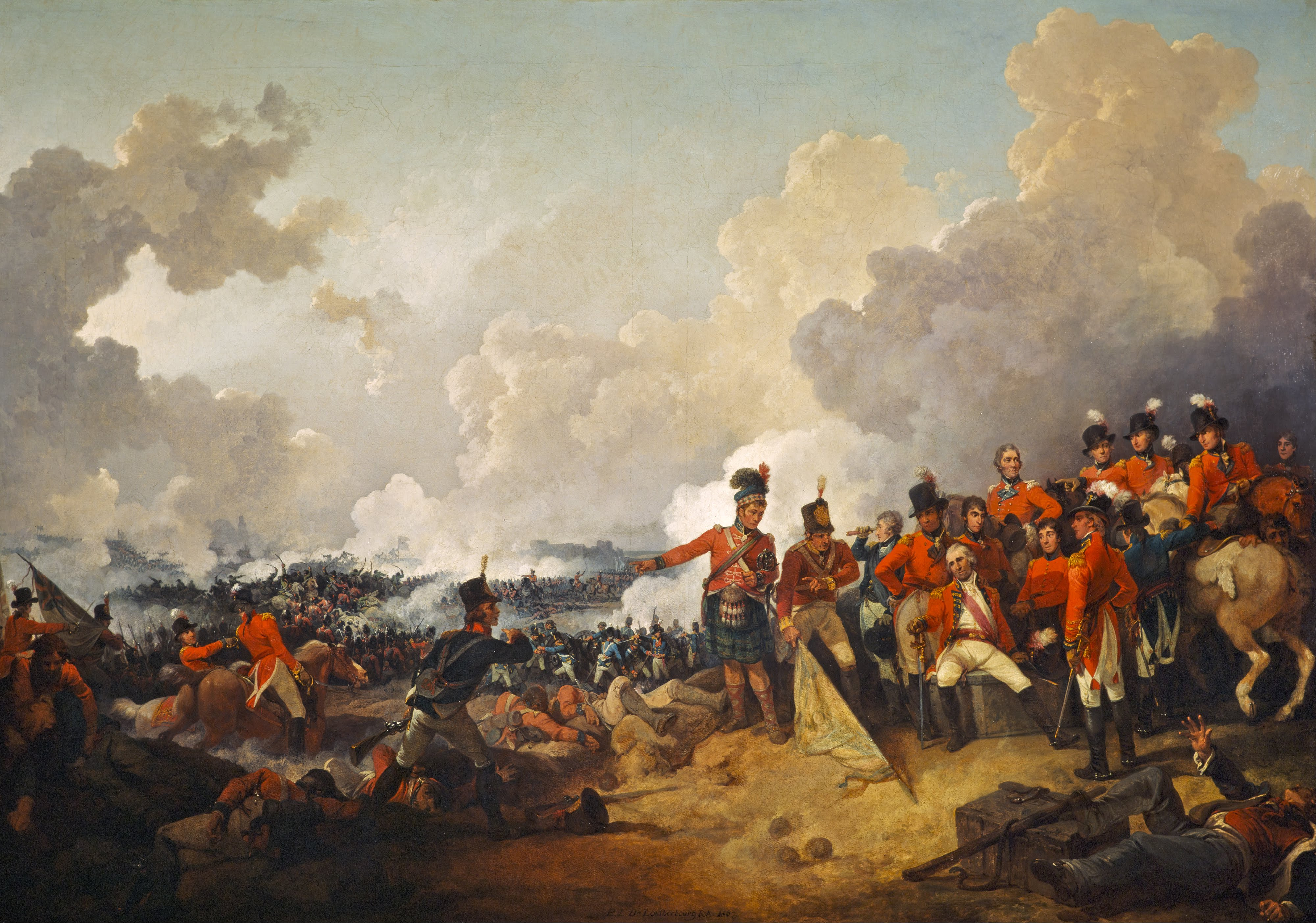With France under constant bombardment in the Revolutionary Wars as seemingly all of the European Crowns turned against the upstart Republic, General Napoleon Bonaparte launched his Egyptian campaign of 1789 in an effort to put pressure on India and, hopefully, draw Britain out of the war. His fleet sailed south disguising its agenda, conquering Malta and moving rapidly toward its final destination of Alexandria. While the fleet under Admiral François-Paul Brueys d'Aigalliers anchored in Aboukir Bay, Napoleon began his conquest with his land armies. Brueys supported Napoleon with naval bombardments, but by July 27 Napoleon was eager for the admiral to move on to better harbors. He dispatched a courier to Brueys ordering him to move to Corfu in Greece to prepare for campaigns against the Ottomans.
As the fleet left sight of the shore of Egypt, it came upon the British fleet under Admiral Nelson that had been pursuing them throughout the Mediterranean. With little time to maneuver, both admirals threw their fleets against one another. The more daring Nelson split his fleet, hoping to achieve a crossfire, but the moving French managed to stay beside the British ships, trading blows. The battle lasted until after dark, when the English began to move away.
While tactically indecisive itself, the battle would be proclaimed a French victory. Without many harbors to support them, the British fleet would retreat out of the Mediterranean. Worse, the brave Admiral Nelson would be mortally wounded, struck down by French snipers from the rigging. The battered French fleet would regroup with other ships, building up the force that would later destroy the Ottoman navy and establish French dominance over the Mediterranean.
Napoleon, using easy supply trains across Mediterranean waters, conquered Egypt and moved northward through Judea and Syria. In 1800, he marched on Asia Minor, beginning a string of battles that would finally dethrone the Ottoman Sultan and break the empire into small protectorates of France. In 1802, Britain had hopes of establishing a Second Coalition with Austria, but the Austrian emperors, now free to dominate the Balkans, joined with their former enemies, the French.
Meanwhile, Napoleon continued east through Persia. Many began to fear his egotism as he spoke of himself as the new Alexander, but his victories could not be dismissed. Some called for his return to France, but Napoleon felt confident to press to India, just as his militaristic predecessor had done some two thousand years before.
Britain continued the war alone for three years, but as Napoleon conquered the Indus and headed toward lower India, they sued for peace. At the Treaty of Trafalgar in 1805, establishing in writing the French dominance of the Mediterranean that had been maintained by battle for years, the war came to an end. Napoleon seemed ravenous for more conquest, and the government feared he would turn on France itself. Instead, they sent him on a sort of exile to be the military governor of the huge tract Louisiana in North America, newly won back from the Spanish in the Third Treaty of San Ildefonso.
Napoleon would solidify his command in New Orleans and launch expeditions of exploration and settlement into the countryside. Friction would build between the French and the Americans, who, under President Thomas Jefferson, had purchased shipping rights in the Mississippi as a shared border. Finally, in 1812, war would be declared as Indians in Tecumseh's War were believed by Americans to be supplied by Napoleon.
The frontier war was brutal, and the naval battles in the Gulf and Caribbean devastated both countries' western Atlantic fleets. Napoleon knew he did not have enough troops for a wide front, so he decided to build up a Grande Armée and march up the Ohio River Valley with the final goal of Washington, D.C. The gamble would prove a blunder as American civilians and soldiers alike would plague the French with snipers and guerrilla combat. Before his planned crossing of the Appalachians (perhaps to match another hero, Hannibal), Napoleon decided to turn back.
The final battle of the War of 1812 was near New Orleans, where Col. Andrew Jackson marched to take the nearly unguarded capital. Napoleon raced back, rallied his men, and counterattacked in another gamble that would fail as Jackson's troops hid behind wagons and trees (fighting “without honor” as Americans were known to do). Artillery seemingly disintegrated the American force, but the stalwart frontiersmen slipped behind the French and captured Napoleon in his command tent.
The war ended with the Treaty of New Orleans, where France would surrender its Louisiana colony and Americans pay reparations for property and life lost to a total of 78 million francs (15 million dollars). The embarrassed Napoleon would be sent to Haiti as governor without arms, and he would die in 1821, some say of a broken heart.
–
In reality, the courier sent to Admiral Brueys would be slain by Bedouin, never to arrive. The French fleet was anchored still in Aboukir Bay, hoping to be protected by shoals and forts, but the daring Nelson maneuvered to catch them in a devastating crossfire. Without his fleet, Napoleon's Egyptian Campaign would eventually crumble, but not before he would return to France to begin a career giving up colonial conquests and instead building an empire from Europe itself.

Did you mean to place this in 1799, when the actual Battle of the Nile took place? On 1 August 1789, the Revolution was a mere two weeks old and war with Britain was still three years away - Nelson was still a captain on half-pay at home in Norfolk and Napoleon was a junior officer in Corsica.
ReplyDeleteYes, 1799. Thanks for the catch!
ReplyDeleteWarfare is a fascinating subject. Despite the dubious morality of using violence to achieve personal or political aims. It remains that conflict has been used to do just that throughout recorded history.
ReplyDeleteYour article is very well done, a good read.